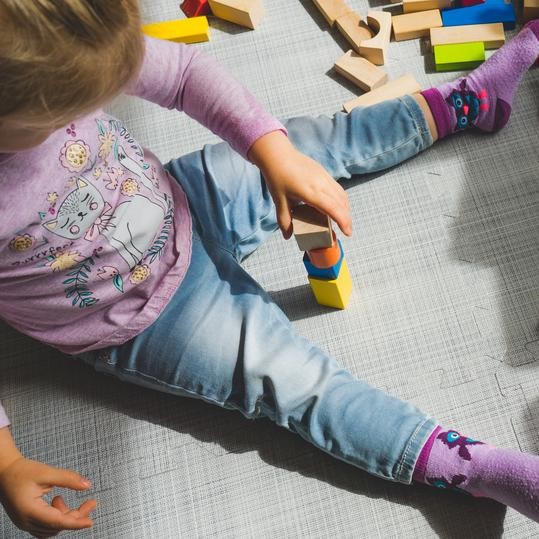Tips for Parents and Caregivers:
Interacting with Children about COVID-19
The health and safety of our community is our priority. We know the amount and changing nature of the information you have and continue to receive can be confusing and overwhelming. Our goal at United Way of Greater Portland is to share resources, best practices, and information in the days and weeks ahead. Below are resources and recommendations that have been curated to help you know what to expect, how to prepare, and what to do regarding COVID-19. We are an incredibly strong community and even in the midst of challenge it is how we react and pull together that sets us apart. Working together we can weather any storm. Simply put, we are better together. We are one UNITED Greater Portland.
Get the most up-to-date and accurate information here:
- World Health Organization’s advice for the public.
- Coronavirus pages of Maine CDC and US CDC.
- 211 Maine is a resource for many things including assistance finding food, paying housing bills, accessing childcare, or other essential services.
- Multilingual resources
- Information on children and COVID-19:
Talking to your kids
- Discuss in an area that feels comfortable and safe and encourage them to ask questions
- Validate their feelings
- Utilize drawing or other activities to help them express their emotions
- Discuss, practice, and celebrate preventive behaviors
- Washing hands for 20 seconds with soap and water while singing A-B-C song
- Covering mouth and nose with a tissue or bend of the arm when coughing or sneezing
- Discuss what they have viewed on the Internet and clarify misinformation. Minimize exposure to media outlets or social media that might promote fear or panic.
- Clarify that not every cough or sneeze means someone has COVID-19
- Communicate that COVID-19 is spread through person-to-person contact so it is important to wash our hands and avoid touching our faces.
- Communicate that their school is closed because all adults at the school want them to be safe and healthy, and scientists recommend avoiding crowds or large gatherings.
VIRTUAL LEARNING RESOURCES
- Check in with your child’s school district for curriculum and resources provided by teachers.
- Khan Acadamy‘s Free Distance Learning Curriculum
- Scholastic’s Free Learn from Home Resources
- Community Learning for ME free virtual resources for PreK to Grade 12
- YMCA of Southern Maine’s digital youth resources
FOOD RESOURCES
- Wayside Food Programs’ Continuously Updated Food Pantry Map
- The Maine Dept. of Education’s Child Nutrition program states that, “meals can be delivered directly to a quarantined house with household consent (phone call).”
- Call your local school district for information on school breakfast and lunch distribution.
- Feeling full? The Foundation for Portland Public School is collecting donations to support food programs for students.
Questions about Childcare Options?
Child Care Choices of Maine has continuously updated information about which licensed child care programs are open and have slots available as well as providers accepting Child Care Subsidy during this time
Do you have materials on hand?
- Basic health supplies (e.g. soap, hand sanitizer, tissues, thermometer)
- Supply of regular medication taken by yourself or family
- Medication for chronic conditions
- Drinking water and non-perishable food
- Cash
- Activities for children: books and games
- Batteries as needed
Create a list, accessible to adults in the family and your children, of helpful community and family resources
- Family doctor number
- Children’s school number
- Extended family or friends contact number
- Community mental health centers – call 211, text your zip code to 898-211, or email info@211maine.org
- Local crisis resources – visit https://www.maine.gov/dhhs/hotlines.shtml
- Websites to check-in on
Daily activities
- Maintain consistent home schedules including bedtimes and meals
- Help your family engage in fun and meaningful activities consistent with your family
- Continue to eat healthy foods and drink a lot of water
- Get some exercise
- Attempt to control self-defeating statements and replace them with more helpful thoughts (https://arfamiliesfirst.com/wp-content/uploads/2013/05/Cognitive-Distortions.pdf.) remembering you are a role model for your children
Are you worrying?
- “How to Reduce the Stress of Homeschooling on Everyone” Greater Good Magazine
- Set a 3-minute timer. During this time, think about the worries all you want. When the timer goes off, worry time is over! Get up, move to a new space, and start a new activity!
- Take some time to sit and slow your breathing. Slowing inhaling and exhaling 5 times.
Center for Grieving Children’s COVID-19 Resources:
Age-Specific Advice on Stress/Worrying:
|
Age Group |
Reactions |
How to Help |
|
Preschool |
|
|
|
School Age (ages 6-12) |
|
|
|
Adolescent (ages 13-18) |
|
|
Source: The National Child Traumatic Stress Network
Have a great resource that you’d like to share? Contact us at info@unitedwaygp.org.
Page Updated: May 5, 2020
